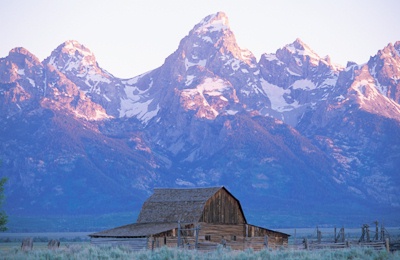All Nonfiction
- Bullying
- Books
- Academic
- Author Interviews
- Celebrity interviews
- College Articles
- College Essays
- Educator of the Year
- Heroes
- Interviews
- Memoir
- Personal Experience
- Sports
- Travel & Culture
All Opinions
- Bullying
- Current Events / Politics
- Discrimination
- Drugs / Alcohol / Smoking
- Entertainment / Celebrities
- Environment
- Love / Relationships
- Movies / Music / TV
- Pop Culture / Trends
- School / College
- Social Issues / Civics
- Spirituality / Religion
- Sports / Hobbies
All Hot Topics
- Bullying
- Community Service
- Environment
- Health
- Letters to the Editor
- Pride & Prejudice
- What Matters
- Back
Summer Guide
- Program Links
- Program Reviews
- Back
College Guide
- College Links
- College Reviews
- College Essays
- College Articles
- Back
Under the Montana Sky MAG
Before Crazy Horse rode into battle, he would paint a lightning bolt on his forehead, paint hail on his chest, and place a pebble behind his ear. Most warriors dressed in their best headdresses and clothing, but Crazy Horse had had a vision that he would never be hurt in battle as long as he was humble about being a warrior. In a culture that cherished strong, brave warriors, he refused to be perceived as a hero. I learned this from a retired history teacher at the Battle of the Little Bighorn site in Montana.
It was 102 degrees with not a cloud in the big blue Western sky when my family crossed the border from South Dakota into Montana. A ranger emerged from the museum at the battle site and announced that there would be a talk on the back patio in three minutes. My mother and I joined the packed crowd.
It was easy to get swept up in the ranger’s story as we overlooked the site where the actual battle between the Native American tribes and the American soldiers occurred. Sitting Bull, the Lakota chief, had told his people not to go to the reservations. He knew that their time on their land was almost up and he wanted his people to live freely. The Native Americans created a village for themselves, knowing they would fight to protect it.
When the American soldiers finally arrived, young Natives made a dust cloud around the camp by tying bushes to their horses’ tails. As they galloped around the camp, the dust rose. Guns started firing and General Custer was killed. Soldiers’ bodies were mutilated and the Little Bighorn River ran red with blood.
Crazy Horse rode his horse over a blind hill and straight for the soldiers with guns. He had no fear because he had had a vision: he was not going to die in battle that day. White Bull followed Crazy Horse over the hill, and all the other warriors followed.
The Native Americans won the battle and moved the village south as the sun went down. Two Moons was asked how long the battle lasted. He responded, “As long as it takes a hungry man to eat his dinner.” A total of 263 soldiers and 160 warriors were killed.
During the talk, the ranger used an arrow to point to where Crazy Horse ran over the hill, to where the river ran red with blood, and to where the American soldiers killed their horses so they could take shelter behind the dead animals. I was taken back to a time when cultures clashed. It seems that this clashing of cultures exists no matter what time or nation you’re in; people often assume their ways are better than another’s.
After the talk, the ranger asked the crowd if war is worth it. Yes, he added, some wars have been necessary, he wouldn’t deny that. But is war always necessary to get nations to cooperate? He didn’t blame the Native Americans or the American soldiers for the battle. He ended with this same thought: Is war worth it?
The previous time I had gone to the Battle of the Little Bighorn site I was 10 years old. I didn’t know the history of the site then, but I have a picture of my sister, cousin, and me underneath a Black Elk quote that reads, “Know the power that is peace.” As a 10-year-old, I didn’t think about what the words meant. After hearing the ranger’s story recently, I see the sign differently. My mother took another photo of my father and me beneath it. I am on his shoulders holding my arms out wide beneath the words, a 16-year-old with new knowledge of their meaning.
My adventure out West was one I will not forget. Walking up the hill at the Battle of the Little Bighorn made me realize how much history exists that I don’t know about. It’s not every day we learn about what our country did wrong, but every country has made mistakes; to move forward, we need to learn from them. I want to learn all I can about America’s past.
I would tell everyone to go to Montana and to enjoy the hot weather and big sky as they drive to the Battle of the Little Bighorn site. I would tell them to stop at the trading post across the street and eat a bison burger. Then I would tell them to listen to the ranger talk – really listen. The walk up the hill, no matter how hot it is, is worth it. To stand on the hill where a historic battle took place and to have Black Elk’s words echoing in your mind is worth the effort.

Similar Articles
JOIN THE DISCUSSION
This article has 1 comment.

10 articles 0 photos 48 comments
Favorite Quote:
Just be yourself,if you are happy that's all that matter's.